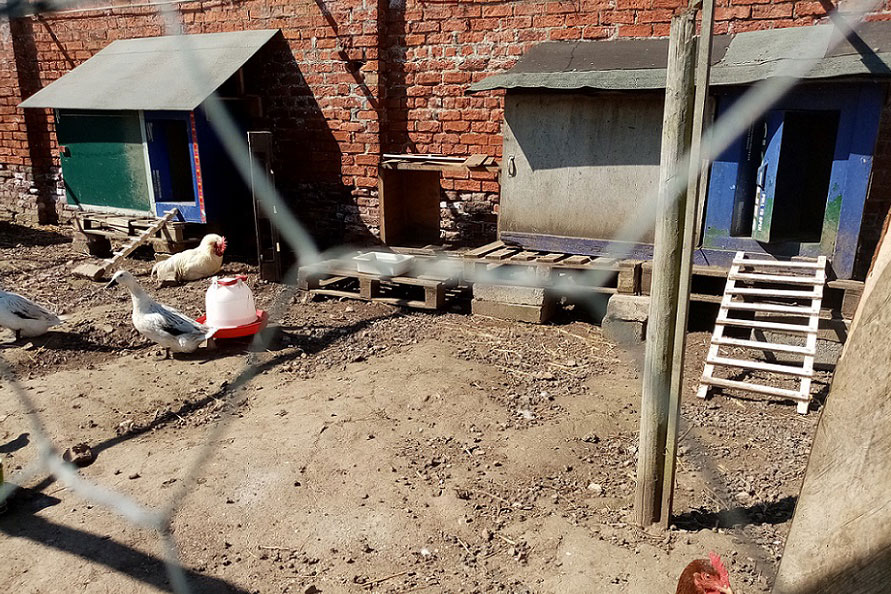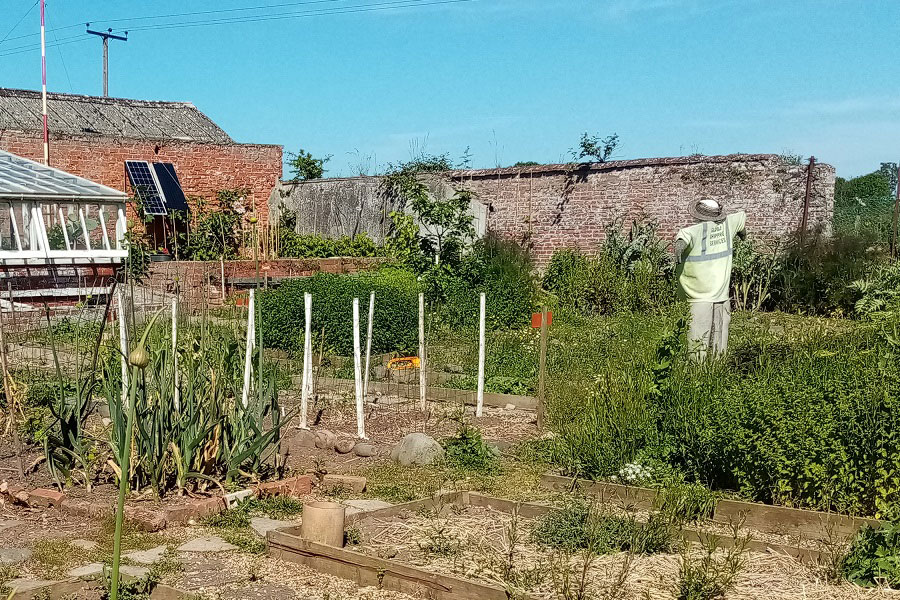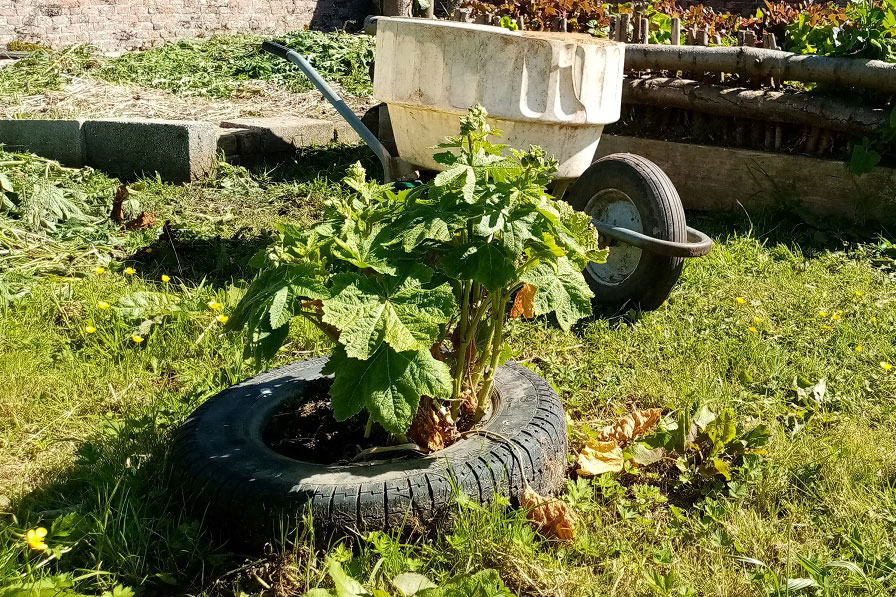The 6 R-s: Repair, Reduce, Refuse, Reuse, Recycle, Repeat
Our Climate Activist summer programme has just started, and one of the themes they study is the 6 R-s.
Maybe you wonder: Does it really makes any difference what I do?
The answer is YES – it does!
Why re-cycle and repair and reuse..?
Our “consumer society” is one of the reasons for rising CO2 emissions, causing global warming and climate change. We are often called "consumers" rather than "citizens". And our habits of shopping and consuming are causing huge environmental problems - because we are so many, and it has continued and increased for a long time......
So what we do as individuals can have a big impact! We need to learn and understand more...and we need to start being the change!
From the course:
“According to the UN Environment Programme, if the world population reaches 9.6 billion by 2050, we could need “the equivalent of almost three planets... to sustain our current lifestyles.”
1.3 billion tons of all food produced is wasted every year, and the natural resource base to supply food is being threatened by overfishing, land degradation, and more. Humans are polluting the world’s freshwater supplies faster than nature can purify them.
Sustainable living is a lifestyle, practice, and philosophy. And in the face of an increasingly threatened and rapidly degenerating earth, it can often feel as if a single human’s small choice can’t make a big enough change. But it’s the accumulation and transmission of these choices—from opting for reusable face wipes to calling your local representatives—that can make all the difference.”
Working towards sustainability at CICD
These are our main 3 focus areas right now:
1. Becoming more self sustainable with our food. We have enough eggs from our chicken and ducks. Last year we had a bumper harvest with potatoes enough for a year and good results with crops like courgettes, tomatoes, apples, onions and many herbs and spices.
2. Re-using as much as possible, instead of throwing things “away”. Because there is no “away” - what we put in our garbage skips will be burned and create more greenhouse gasses, or put in a landfill to pollute the soil and maybe the groundwater.... So everything we can find a use for, we use again – sometimes in surprising new ways! – and things we cannot use, we save and give to charity shops.
3. Recycling clothes and shoes, with our 700 clothing banks placed around north England and south Scotland. During the 1st quarter of 2021 we collected 257 640 kg of clothes and shoes! Recycling clothes saves a lot of resources. It has been calculated that for every T-shirt that is reused we save 2700 litres of water, as well as the fertilizer and pesticides used to grow the cotton. Besides 2.3 kg less greenhouse gas is sent out into the atmosphere (average for a lifetime of a T-shirt).
From our studies during the first weeks
Below you can see some products from our studies about some of the many species that are in decline or endangered to go extinct. Currently over 1 million plant and animal species face extinction. One of the biggest threats is agriculture - or rather: agribusiness.
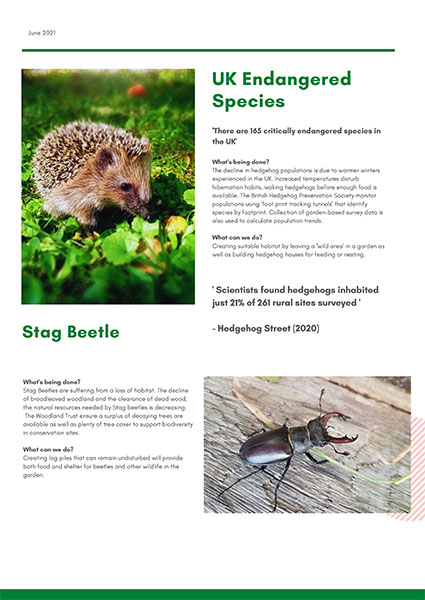
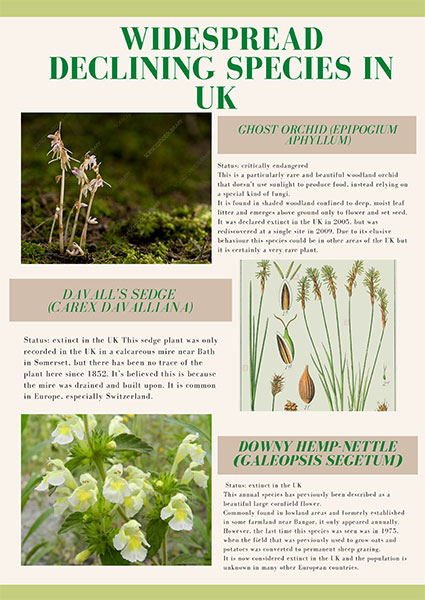
The 9 Planetary Boundaries – and our future
This is another topic of studies in our Climate Activist programme, to get to understand more about the nature of our global climate crisis.
With the 9 Planetary Boundaries, the researchers wanted to define a "safe operating space for humanity" for the international community.
Studying this helps us understand more about why it is happening.
And what kinds of actions does humanity need to take to mitigate the consequences, and change course again towards being a sustainable world?
“Breaking Boundaries”
This is the name of new and essential documentary giving some background, and explaining the climate crisis - by scientist Johan Rockstrom and naturalist and author David Attenborough.
It's one of those films that makes you look differently at the world, when you have seen it.
It is about science – but it's made to communicate a very urgent message clearly to everyone:
We don't have much time left to create the change we need.
The film follows the scientific journey of Johan Rockström and his team's discovery of the nine Planetary Boundaries we must stay within, not just for the stability of our planet, but for the future of humanity.
The framework is based on scientific evidence that human actions since the Industrial Revolution have become the main driver of global environmental change.
You find “Breaking Boundaries” on Netflix – and you can watch the trailer here:

